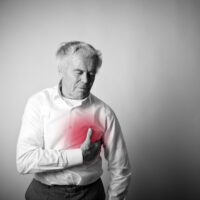Health & Wellness
Carcinoid Neuroendocrine Tumors – Prognosis And Life Expectancy
Carcinoid neuroendocrine tumors – Prognosis and life expectancy The neuroendocrine system is a complex regulatory mechanism comprised of cells spread throughout several organ systems, including our lungs and digestive system. As they have characteristics of both nerves and endocrine cells, they are called neuroendocrine cells. The nerve cells transmit signals using electrical impulses, whereas endocrine cells make thyroid and insulin-secreting glands. This article intends to discuss the carcinoid neuroendocrine tumor that starts in these cells in detail. What is a carcinoid neuroendocrine tumor? A carcinoid neuroendocrine tumor starts in the cells of the hormone-producing organs in our body. A carcinoid tumor is a type of neuroendocrine tumor that most commonly arises in the gastrointestinal system, which includes intestines, stomach, and esophagus. Carcinoid tumors account for about 1% to 2% of lung cancers. As carcinoid tumors originate from tissue that produces hormones, the main side effect of the condition is the inappropriate release of various hormones in the bloodstream. Carcinoid neuroendocrine tumor can arise in a number of locations categorized into three areas: the foregut, midgut, and hindgut. Lungs and stomach form the foregut area. The midgut comprises of the small intestine, colon, and appendix. The hindgut includes the end of the large bowel, the rectum, and genitourinary tract organs (ovaries and testes). What factors raise a person’s risk of developing a carcinoid tumor? A family history of multiple endocrine neoplasia type 1 : This hereditary condition increases an individual’s risk of developing tumors in the pituitary gland, pancreas, and parathyroid gland. Age : Age seems to be a major factor that plays an integral role, as children rarely develop carcinoid tumors; the average diagnosis age is 55 to 65 years for this condition. Race and gender : Carcinoid tumors are more common among black people than white people, and black men have a higher risk than black women. White men and women have the same risk levels, and after treatment, women tend to live longer. Other medical conditions : Some medical conditions that damage the stomach and reduce acid production increase the risk of developing a carcinoid neuroendocrine tumor. What are the symptoms of a carcinoid tumor? Signs and symptoms of a carcinoid neuroendocrine tumor depend on where the tumor develops: Carcinoid tumors in the lungs : The symptoms of a tumor in the lungs are chest pain, wheezing, diarrhea, shortness of breath, skin flushing (redness and a feeling of warmth on the face and neck), weight gain, particularly around the midsection and back, and pink or purple marks on the skin, which look like stretch marks. Carcinoid tumors in the digestive tract : The symptoms, in this case, are abdominal pain, diarrhea, nausea and vomiting, intestinal blockage, causing an inability to pass stool, rectal bleeding and pain, and skin flushing. What are some effective management tips for the symptoms of carcinoid neuroendocrine tumors? Facial flushing : Avoid stress and ask your doctor about specific foods that cause facial flushing so that you can avoid them. Diarrhea : Ask your doctor for anti-diarrheal medication. Wheezing : Ask for medication that relaxes muscles in the lungs to make breathing easier. Heart problems : Discuss your heart issues with your doctor so that they can prescribe diuretics, which lower the blood pressure. Carcinoid syndrome : Use octreotide on prescription, which is the most effective medication to treat carcinoid syndrome. What is the prognosis for carcinoid neuroendocrine tumor? Carcinoid neuroendocrine tumors can be benign (non-cancerous) or malignant (cancerous). Benign carcinoid tumors are small and can be removed completely. They don’t come back and don’t spread to other parts of the body. They don’t produce any symptoms as well. Malignant carcinoid tumors are large, and their cells can invade and damage the surrounding tissues and organs. Additionally, malignant cells can enter the bloodstream or lymphatic system and can even form new tumors in other parts of the body. Lymph nodes, lungs, bone liver, and skin are the common sites for carcinoid metastases. Carcinoid tumors grow slowly in comparison to other cancers, such as lung, colon, pancreas, or liver cancer. Patients with larger malignant carcinoid tumors (with or without metastasis) can survive and have a good quality of life after proper treatment. Adenocarcinoids, a rare form of carcinoid tumors, are more aggressive than the typical malignant carcinoid tumors.
View More












